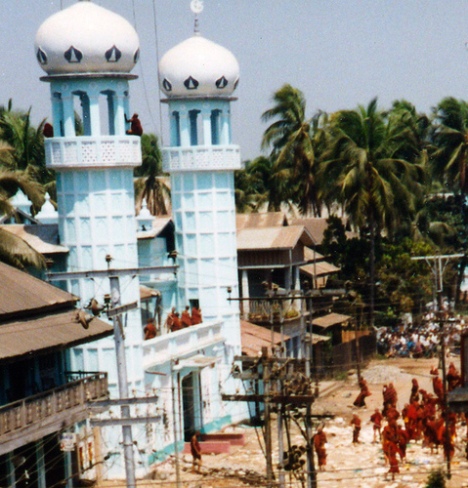Dream Interview with DSAI
Part IV
BURMA DIGEST: Dear Datuk Sri, thank Your Honour for allowing to continue interviewing you in my day dreams. Let’s continue the topics we were discussing in the last article. Is poverty the cause of lack of Human Rights?
H. E. Datuk Sri Anwar Ibrahim… Yes, I agree with you. I noticed that we should discuss in detail about the relations of poverty and the lack of Human Rights.
UN High Commissioner for Human Rights Louise Arbour had rightly stated that_
Today, poverty prevails as the gravest human rights challenge in the world.
-
Combating poverty,
-
deprivation
-
and exclusion
_is not a matter of charity,
_and it does not depend on how rich a country is.
By tackling poverty as a matter of human rights obligation, the world will have a better chance of abolishing this scourge in our lifetime…
Poverty eradication is an achievable goal.
Poverty is a cause and a product of human rights violations. It is this double edge that makes poverty probably the gravest human rights challenge in the world. The links between human rights and poverty are obvious :
1. People whose rights are denied — victims of discrimination or persecution, for example — are more likely to be poor.
2. Generally they find it harder or impossible to participate in the labour market and have little or no access to basic services and resources.
3. Meanwhile, the poor in many societies cannot enjoy their rights to education, health and housing simply because they cannot afford them.
4. And poverty affects all human rights: for example, low income can prevent people from accessing education — an “economic and social” right –
5. which in turn inhibits their participation in public life — a “civil and political” right — and their ability to influence policies affecting them.
6. Yet, poverty is still rarely seen thought the lens of human rights. Rather it is often perceived as tragic but inevitable, and even as the responsibility of those who suffer it. At best those living in poverty — countries and individuals — are portrayed as unfortunate, at worst as lazy and undeserving.
7. The reality is different. Many ingredients go into making poverty, but factors like discrimination, unequal access to resources, and social and cultural stigmatization have always characterized it.
8. These “factors” have another name: the denial of human rights and human dignity. What’s more, these are factors governments and those in a position of authority can, indeed are obliged to, do something about. The realization of human rights – including the fight against poverty — is a duty, not a mere aspiration.
Question… Burmese famous poet U Ti Moe said_“Military rule is like a Plitical HIV/AIDS”. Do you agree Datuk Seri? Recently Video tapes of wedding of the Senior General Than Shwe’s daughter, was even shown on BBC and CNN. There are news that she got about US Dolar 50 million What will happen if there is a true democracy?
Answer… In the full democracy countries, it would sound the alarm bells in all the branches of administration, judiciary and should become a jucy news for the independent media to start a relentless attack and investigative journalism. But in Myanmar there maybe a deafning silence.
In any full democracies or even in flawed democracies and the hybrid regimes (except for the authoritarian regimes like present SPDC Military Regeme) such serious corruption by the top leader of a country would have caused instant public uproar, with the mass media relentlessly pursuing the culprit and law enforcement agencies such as the anti-corruption agency, Special Branch, attorney general and the respective police moving in to investigate and prosecute. Such series of events will definitely lead to the resignation of the culprit or the corrupt politician, followed by open prosecution. If there is a undeniable video evidence as you said, there is no alternative but to resign gracefully for the corrupt leader.
Question…Datuk Sri, how do you see the future “Guided or Disciplined democracy” under the doctrine of “Permanent dominance of Myanmar Military”.
Answer… In all the countries around the world, even civilian Defense Ministers are always placed above the whole Military i.e. above the top Generals or Chief of Staff.
1. Military are the arms and legs of the people trained to fight, kill, defend and obey the people and the country. They should not be the masters or leaders of the country. 2. Politicians people had chosen to represent them are the brain or the persons to lead and decide for every thing.
3. The Military Personals are taught to just obey the orders.
4. So even to start or stop the war, politician civilian leaders have to decide.
5. The Senior Generals’ view must be taken into consideration but they must obey the civilian government’s orders.
6. Nevertheless, after all, even the Democratic Governments must be regarded to be employees of the people, elected and given salary to govern the country as the people’s reprensentatives.
7. Military leaders and even Democratic Government Leaders must stop thinking and behaving like the masters of the people.
8. I could not see any chance of transforming to real and meaningful participatory democracy when:
- 25% of he seats are reserved for Myanmar Military. And they wrote in the constitution that
-
the President must have 15 years of military experience and
-
Defense Minister’s status is equal to the Deputy President.
-
The Myanmar Generals are actually planning for the total and permanent dominance of the military in their so called “guided democracy”
-
They even want to legalize the future military coups as their legimitate rights given by the people enshrined in the constitution.
9. So the future role of ordinary Burmese Citizens are sure to be degraded to just confirming or approving the showcase of sham elections not unlike the elections under communists and dictators.
10. The SPDC is going to stream-rolled the so-called seven steps to democracy with their tanks.
Burma Digest: Thank you very much Datuk Sri for the chance to have this dream interview. Do you wish to say any thing as an advise to Burmese people or the SPDC?
H. E. Datuk Sri Anwar Ibrahim…Well, Although I am a Muslim, I used to read a lot on all the religions of the world. It may be appropriate if I used this saying which is well known amongst Burmese Buddhists.
We avoid charity because we are poor?
Or are we poor because we refrain from charity?
I hope you all know the answer.
Human Rights and poverty are also related.
We need to ask whether we should be denied of the Human Rights because we are poor?
Are we continue to stay in poverty because we are denied of our Human Rights?
I strongly believe and pray that all the Burmese citizens could have a chance to taste the political freedom, socio-economic progress, wealth and could enjoy all the Human Rights and Individual Freedoms in a very near future.
Burma Digest: Thank you.
Filed under: Anwar Ibrahim, Burma, Dream, Poverty | Tagged: Anwar Ibrahim, Day dream, Human Rights, interview, Malaysia, Myanmar, Poverty, SPDC | Leave a comment »






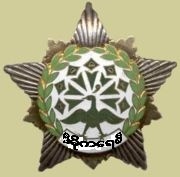

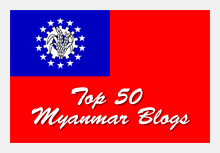
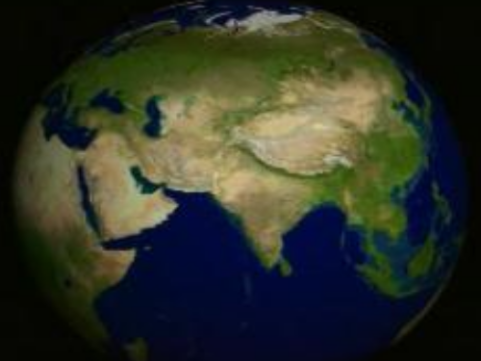

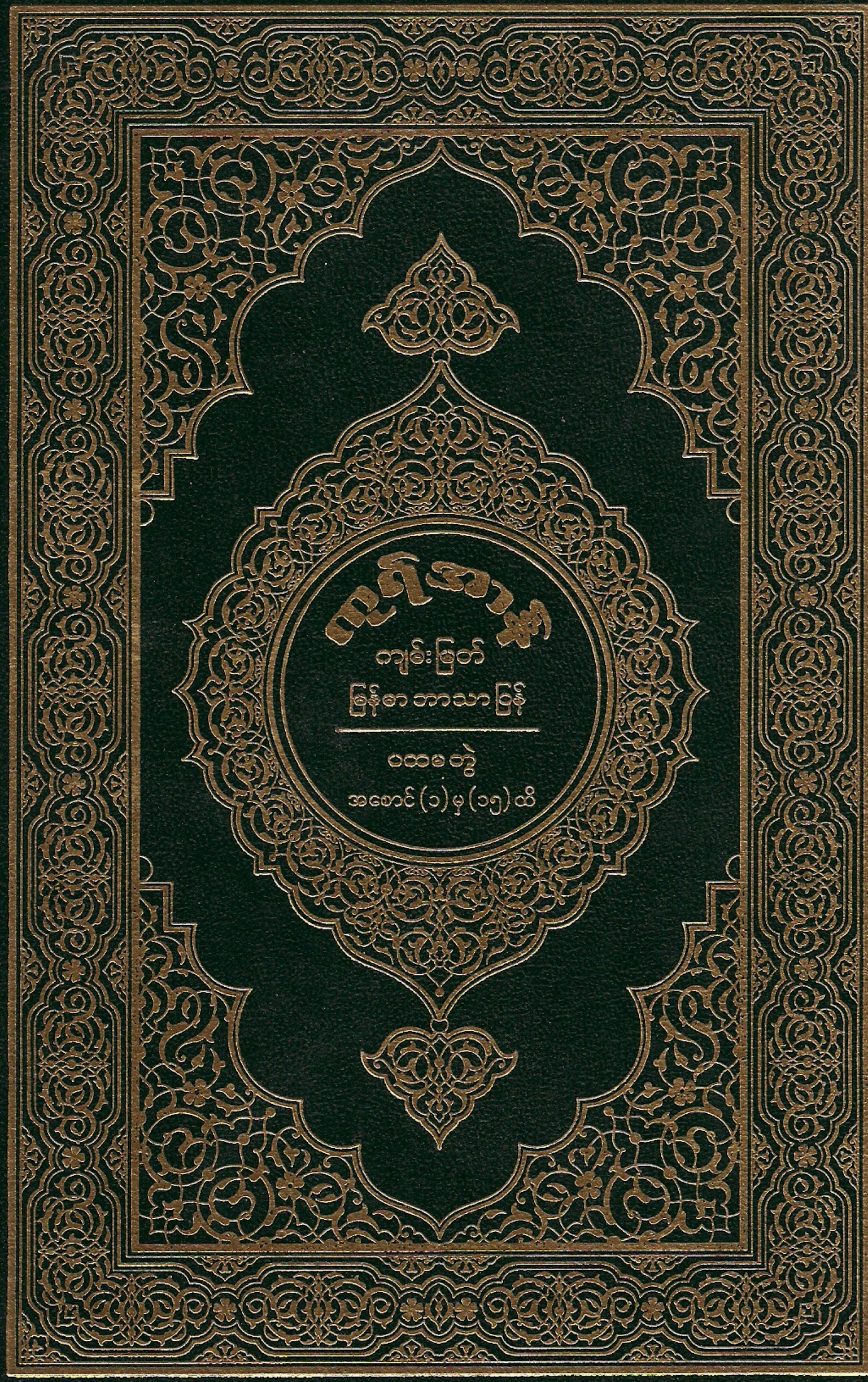
+(Small).jpg)
